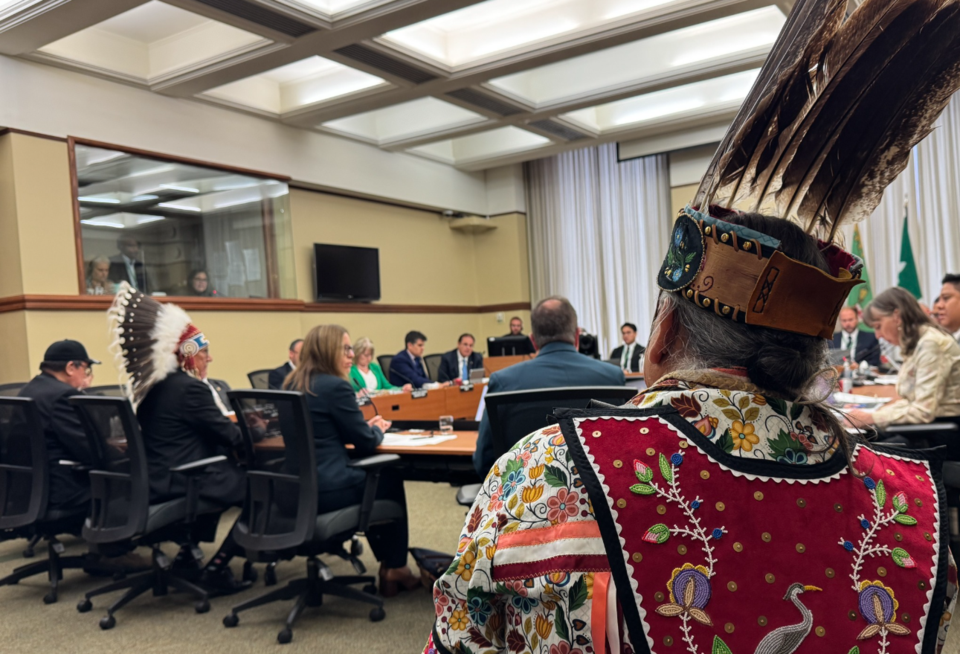The Ford government has kicked off the Indigenous consultation process to get some feedback and buy-in on its new sweeping legislation designed to fast-track infrastructure and resource projects through the regulatory process.
In launching discussions with First Nations, the Ministry of Economic Development, Job Creation and Trade’s road show is seeking to put some meat on the bone of the Protect Ontario by Unleashing Our Economy Act, formerly known as Bill 5.
The legislation, which became law June 5, is geared to expedite massive infrastructure and resource projects — like the proposed Ring of Fire mineral development in the Far North — through a much easier regulatory path to construction.
In a July 14 note sent by JP Cadeau, the ministry’s deputy minister, to Indigenous communities, and obtained by Northern Ontario Business, two very contentious topics will be on the agenda.
The province wants communities' feedback to firm up the regulation criteria to establish Special Economic Zones and also make amendments to the Ontario Heritage Act to exempt certain properties from archaeology requirements under the act.
Both subjects have been very controversial among First Nation communities and environmental groups across Ontario.
“Ontario understands the importance of respectful and meaningful communication and is open to further developing the proposals in response to feedback we receive from First Nation communities,” said Cadeau in his note to invited communities.
The first session was held in Toronto, July 29, at the downtown Eaton’s Centre. The second session was held yesterday in London.
The ministry team arrives in Thunder Bay tomorrow and in Sudbury next week on Aug. 14. A second Toronto consultation session is scheduled for Aug. 12.
Unlike the contentious Bill 5 committee hearings in Toronto in May, these sessions are not open to the public.
The locations of these meetings aren’t being disclosed. Cadeau’s note said registered attendees will be emailed the location of the meeting venue, agenda and virtual access link “shortly before the event.”
Cadeau said the province wants Indigenous communities to “play a vital role in shaping the creation, expansion and success of new infrastructure and partnership opportunities.
“Your insights and engagement are essential to ensuring that Special Economic Zones and the legislative amendments to the OHA reflect the needs and aspirations of the people they are meant to serve.”
The technical briefing slide decks for the Special Economic Zones and changes to the Ontario Heritage Act, also obtained by Northern Ontario Business, delved into the finer details on the government’s suggested criteria and offered some talking points for discussion.
For instance, the economic zones are described as geographically bounded zones — “large or small” — where “strategic economic activities” take place in the form of a project. There can be multiple projects taking place inside a zone.
“Vetted projects” put forth by “trusted proponents” in a zone will be put in a regulatory express lane to receive faster permitting, to have permits and approvals modified and exempted, along with other “simplified requirements.”
Trusted proponents are defined as those entities that meet a “high standard for operation, safety and the environment.”
They can be a business, an Indigenous business, a non-profit, municipality, provincial ministry or Crown corporation. They must have a connection to a designated project and a project can’t be designated without being in a zone.
Northern Ontario Business emailed a raft of questions to Cadeau on the transparency of these sessions, the secrecy behind the meeting locations, the ministries involved, and next steps in the process after consultation.
He didn’t respond, but ministry communications staff said that these sessions will be jointly led with officials from the Ministry of Citizenship and Multiculturalism.
“Invitations were sent from the province to all Indigenous communities in Ontario inviting them to participate in the consultation process,” the ministry said in an email.
“We look forward to open and constructive dialogue throughout this process.”
No mention was made of the involvement or roles of the ministries of Energy and Mines, Natural Resources, or Environment, Conservation and Parks in this process.
As a carrot to encourage participation, the ministry is encouraging community representatives to come to the table with their economic development wish lists.
“We also welcome examples of Indigenous-led projects that might fit within the Special Economic Zones framework. This is highlighted as one of the key discussion questions we look forward to consulting and engaging with you on.”
The ministry’s note also reiterated the availability of the government’s New Relationship Fund, offering $85,000 to $100,000 a year to help with community consultation capacity, as well as $15,000 in additional funding per community.




